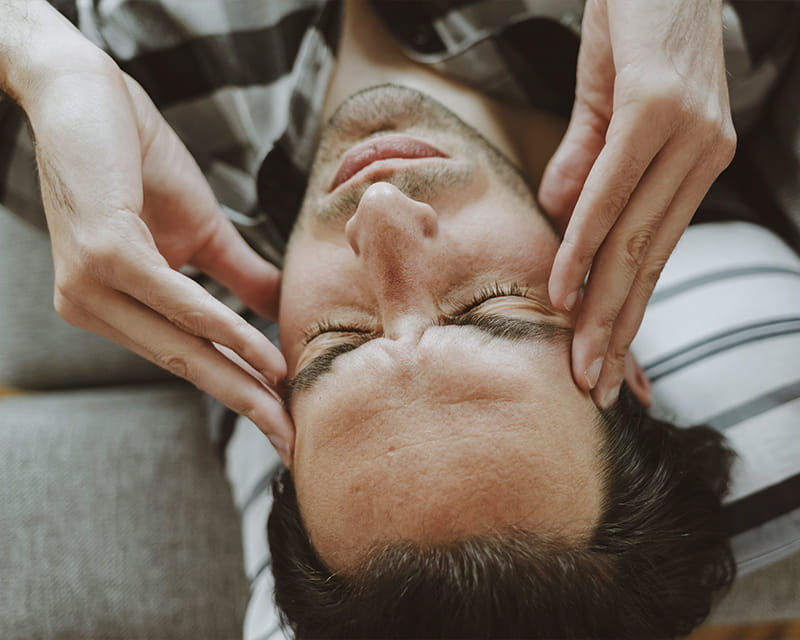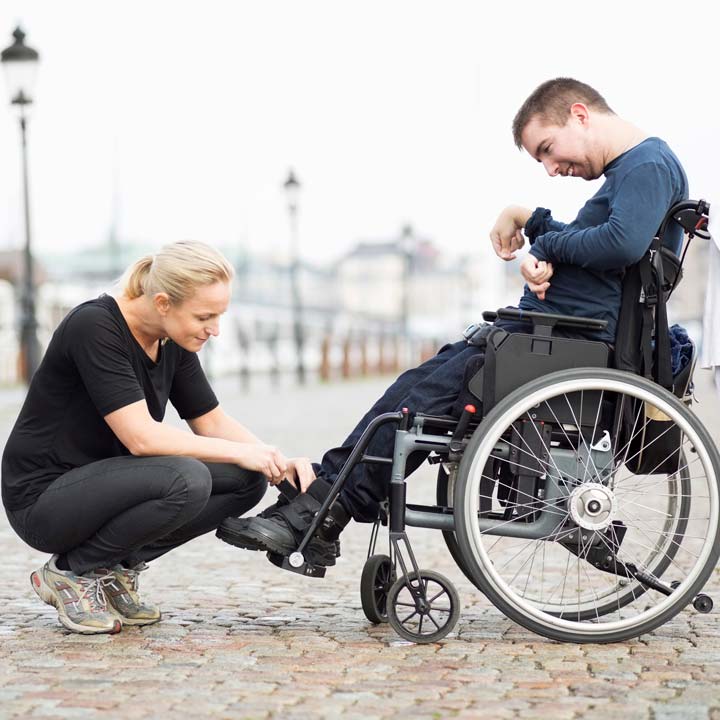
An innovative treatment for chronic post-traumatic headaches
 A new physical medicine and rehabilitation clinic at The Ohio State University Wexner Medical Center focuses on providing wraparound services for patients as they transition from pediatric to adult care settings.
A new physical medicine and rehabilitation clinic at The Ohio State University Wexner Medical Center focuses on providing wraparound services for patients as they transition from pediatric to adult care settings.
The clinic is a passion project for Jessica Prokup, MD, clinical assistant professor in the Department of Physical Medicine and Rehabilitation in the Ohio State College of Medicine. She intends to provide adult physical medicine and rehabilitation (PM&R) care for people with childhood onset and developmental disabilities. Dr. Prokup’s goal is to remain with her patients for the long term, as they age.
The PM&R Transitions of Care Clinic fills a critical care gap for this patient population.
Children with developmental disabilities have significant health care disparities compared to their peers without disabilities, Dr. Prokup says.
“If you look across the lifespan, the health care disparities experienced by children with developmental disabilities continue throughout young adulthood, and unmet care needs often worsen as they age,” she says.
The rich follow-up care and wraparound services common in pediatric practices often are lost when patients transition to adult care. Specialists often work outside of multidisciplinary clinics and put the onus on the patient to navigate their care. Many providers lack experience caring for people with pediatric-onset disabilities.
Some patients may be able to coordinate care on their own. Others might have family or a paid caregiver to assist them.
Many patients, however, get lost. These significant hurdles often stop people from receiving care.
“The task involves finding specialists in the adult world, navigating that space with less follow-up and identifying a health care team that is knowledgeable about their disability,” Dr. Prokup says. “Without the right support, someone with these needs may not get what they need.”
To make the transition work, Dr. Prokup is building relationships with PM&R and complex care pediatric teams at the Ohio State Wexner Medical Center and Nationwide Children’s Hospital.
Her pediatric colleagues already reach out to give her background on patients as they prepare to transition. Dr. Prokup then:
The PM&R Transitions of Care Clinic aims to meet people where they are.
“Children with disabilities and their families often have had bad experiences in health care and can be hesitant to change providers,” Dr. Prokup says.
To help patients feel comfortable, she makes accommodations for:
Having a brother with intellectual and developmental disabilities drives Dr. Prokup’s personal and professional interest in caring for this patient population as they transition to adult care.
She uses a collaborative and person-centered approach to adapt to her patients’ unique needs. Dr. Prokup hopes to achieve this by offering personalized wraparound services.
For example, when patients have equipment needs, she’ll work with them in the wheelchair seating clinic.
If patients require care for spasticity, Dr. Prokup will manage their Botox treatments, baclofen pump or oral medications.
When patients need evaluations for braces and orthotics, Dr. Prokup will order and manage them.
“I want to build an adult PM&R home for my patients to provide them with continuity,” she says. “I want them to have a familiar face every time they come for care.”
As for other aspects of adult PM&R care, Dr. Prokup continues to put the pieces together. She partners with CAST, the Center for Autism Services and Transition, and other Ohio State Wexner Medical Center colleagues and providers who share an interest in serving these patients.
Only a handful of programs – in Cincinnati, Cleveland, Colorado and Michigan – focus on maximizing outcomes for people transitioning to adult PM&R care, Dr. Prokup says.
When Dr. Prokup was in medical school at the Ohio State College of Medicine, she and other classmates developed a four-year disability curriculum. She believes all providers should have some understanding of the medical aspects of development disabilities and how to interact with people who have an intellectual or cognitive disability.
“It’s critical that doctors of all specialties, not just in PM&R, know how to interact with these patients,” she says.
Doctors should address the patient, not just the caregiver in the room. Even if the patient isn’t fully capable of making their own care decisions, they should be an active partner in their own care as much as possible.
“These patients, like any patients, are the experts in their own care,” Dr. Prokup says.
Adopting a holistic approach can make a difference. For example, she might place a call to a specialist one of her patients is about to see, to provide some background and an overview of the patient’s current condition. This can lead to more precise care, opportunities to coordinate care and better outcomes for the person.
Such communication can help combat the stereotypes and ableism that people are exposed to in our society, Dr. Prokup says.